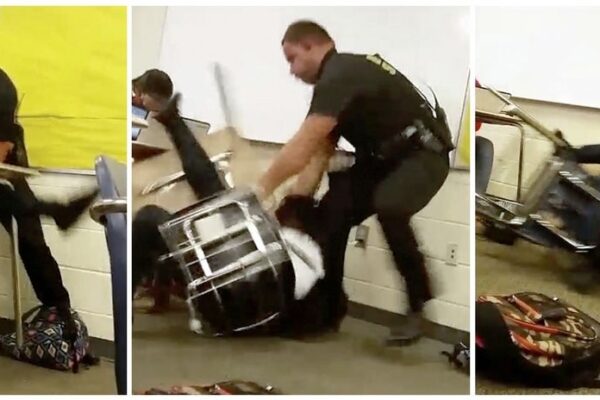All children deserve a quality education in an environment where they are safe and able to learn.
Right now, a law that was intended to protect kids has gone badly off track.
Our state’s Disturbing School Law is putting too many kids on a pathway to prison.
The law is overly broad and misguided and is in desperate need of reform.
We rely on our schools and the people who work there to educate the next generation and to help our kids become productive members of society.
Not every kid is perfect, but right now far too many are being pushed toward incarceration.
The line between school discipline and police arrest has broken down, and thousands of young people — many of them good kids who simply made a mistake — are ending up in jail, their futures tarnished.
And in the worst cases, the arrest is accompanied by violence.
Our schools should be places where young people can learn to prevent and resolve conflicts with the help of teachers, principals and school counselors, not find themselves handcuffed or thrown to the ground by law enforcement.
Students who step out of line can quickly find themselves facing criminal charges and can be fined or imprisoned if found guilty.
“Disturbing schools” is one of the most common reasons young people are referred to family court.
Teens shouldn’t go to jail for being obnoxious or talking back.
How many times did you talk in school as a child? Or were mischievous? Or didn’t listen to the teacher?
Were you dragged out of your desk, thrown across the classroom, and arrested in front of your peers?
That happened in Columbia at Spring Valley High School last October when a situation escalated from a run-of-the-mill battle of wills between a teen-ager and a teacher to a confrontation with a police officer that ended in violence and handcuffs.
There has to be a better way.
This was a school discipline issue, not a criminal issue.
Even more troubling, school policing mirrors policing of communities of color in general. Across the country, students of color bear the brunt of school arrests, and there is evidence that they are punished more harshly in school than their white peers for the same offenses.
We need to scrutinize how African-American youth are being funneled into the criminal justice system directly from school. We call this the school-to-prison pipeline, and it’s a critical civil rights issue.
As a mother, I worry every day about how this law could be used against my son. As a young African-American teen-ager, he’s already six feet tall and likes to wear a sweatshirt with a hood.
I stay involved with the school and with his teachers, and I work hard to make sure he doesn’t end up labeled as a “bad kid” or a “threat.”
My son was close to his grandmother, and soon after she died he had trouble at school. He was struggling with the loss. He’s also been diagnosed with ADHD and has a learning plan to help him to succeed in school.
Even so, he was suspended one day for the putting his shirt on his head. And I wonder if I wasn’t active in his education and with the school if my son wouldn’t have found himself under arrest.
Instead of arresting students, especially those as young as middle school, we should be working to find out what’s happening in their lives and help them onto the right path.
Students who misbehave need a chance to learn from their mistakes.
This is part of a broader movement around the country to keep young people in school and out of jail.
South Carolina has an opportunity to fix the law and improve how we treat our young people.
Reforming the disturbing school law will pay off for our students and for our communities.


